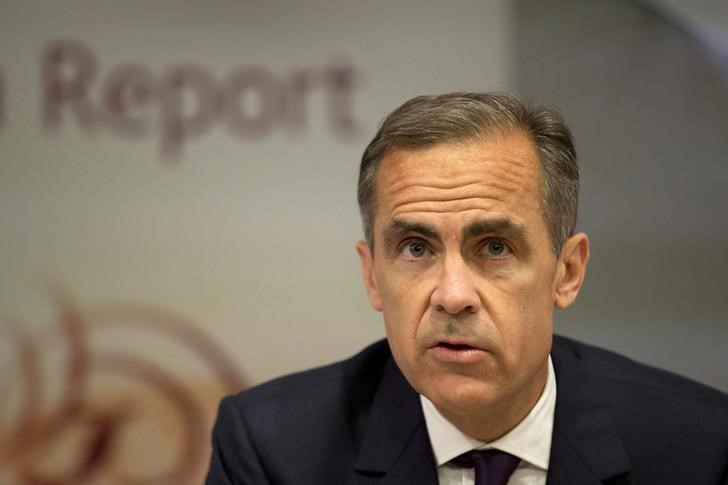Investing.com’s stocks of the week
Investing.com – In the Inflation Report hearings, Bank of England (BoE) governor Mark Carney said that the British central bank would treat the Brexit like any other political event.
Though Carney’s testimony to the U.K. Treasury Committee on Tuesday was meant to explain to MPs about the February inflation report where the BoE cut its UK growth forecast and suggested that interest rates may not increase in 2016, recent pound weakness refocused attention on the European Union (EU) referendum that will take place June 23 to decide if Britain will remain in the EU or cancel its membership.
Though the first question to Carney centered on the possibility of the U.K. leaving the EU, also known as “Brexit”, the committee chairman Andrew Tyrie warned that he did not want the hearings to spend much time on the issue since the BoE governor would testify on that topic on March 8.
Uncertainty over the outcome of the referendum vote hit the pound on Monday after London mayor Boris Johnson stated that he would back the Out campaign and cable hit a seven-year low.
Carney seemed to shrug off recent movements in sterling and insisted that the BoE would not speculate on the results of the referendum.
The central bank will treat the vote “exactly like we treat any other political event”, explaining that the BoE would monitor market developments and factor those effects into its models.
Carney further specified that forecasts of the value of the pound were not factored into the bank’s models.
However, the BoE governor did recognize recent developments in currency markets: “Particularly, there has been a sharp increase in risk reversals: buying more downside protection against future falls in sterling around the referendum date as opposed to upside protection.”
Carney compared the recent move to when the Scottish referendum took place and noted that cable seems to have been the most affected.
With regard to monetary policy, Martin Weale, external member of the Monetary Policy Committee (MPC), noted that the recent weakness in the pound could increase inflation via exports.
MPC external member Gertjan Vlieghe added that, apart from the expected increase in inflation, the weakness should also boost growth.
Vlieghe also admitted the possibility of increased uncertainty by households and businesses that could delay or reduce their spending.
“So far we haven’t seen very clear evidence of that, but we are watching very carefully,” he said.
BoE’s next policy decision is scheduled for March 17.
Sterling continued to show weakness as the testimony progressed.
At 11:19AM GMT or 6:20AM ET, GBP/USD traded at 1.4116 compared to 1.4120 before the start of the hearings.
EUR/GBP moved to 0.7798 from the previous 0.7795.
GBP/JPY traded at 158.17 compared to the prior 158.15.
